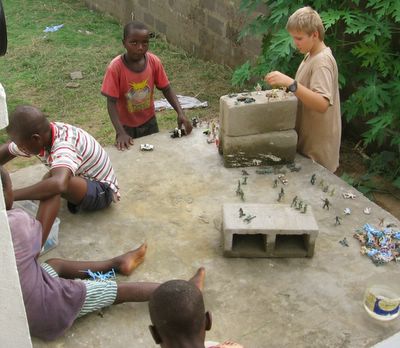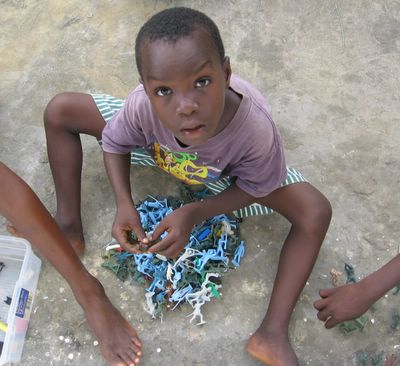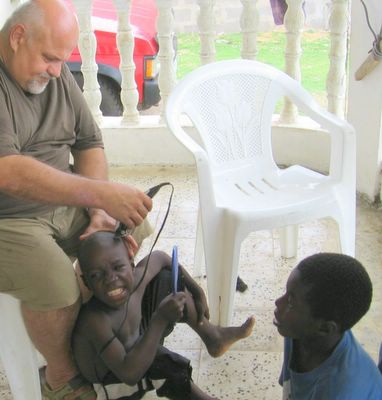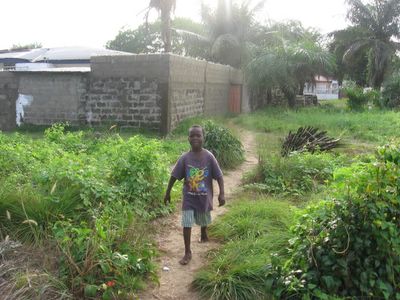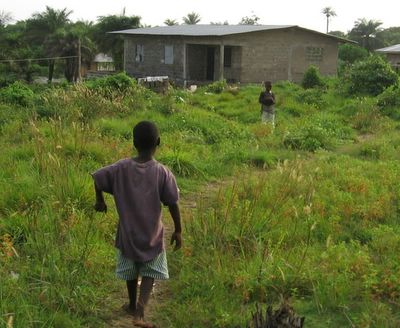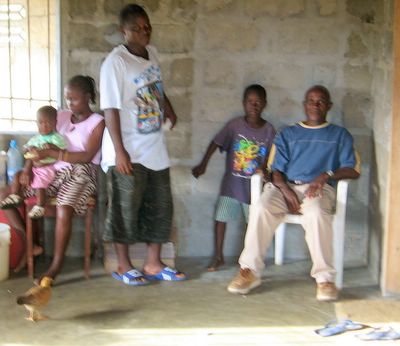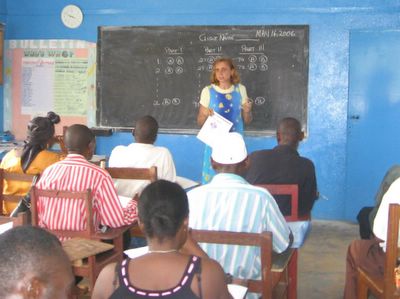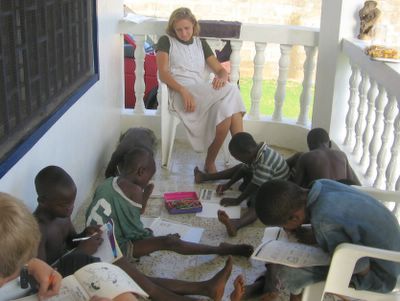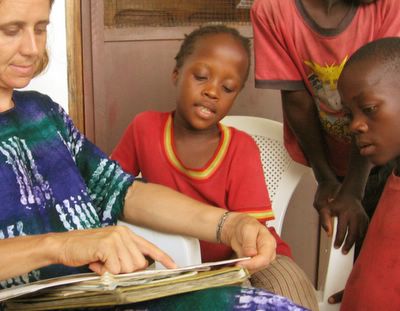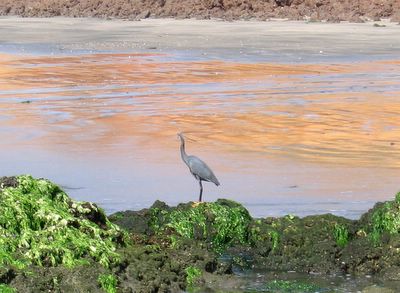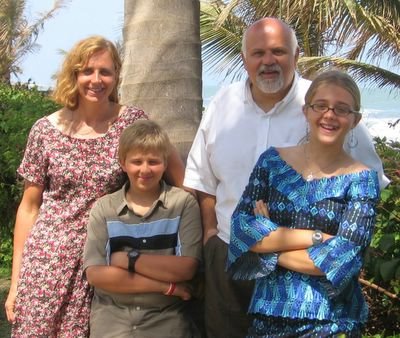
At just under four feet tall, eight year old Enoch is one of the smaller boys in the neighbor- hood. Most kids find him relentlessly annoying and he is forever being pounded by almost everyone around, from girls his size to the teenage boys. He is one of the poorer children in our poor community, often hungry, dressed in grimy torn tee shirts and shorts, with no money to afford flip-flops let alone shoes. Because his feet are bare, his soles are cut and his toes have “jiggers,” (real name chigoes-- not the same as chiggers)) the nasty larvae that we dug out of Renita’s big toe last August. Last month, we extracted three from two toes. Unfortunately, he quickly loses the flip flops we occasionally buy for him.
He lives with his mother and grandparents, in an unfinished, open cement block house with no furniture. The family eats sitting on the floor, sleeps on thin foam mats and are always exposed various diseases brought on mosquitoes, flies, rats and the chickens that also make Enoch’s house their coup. Lack of sanitation is a significant problem. There is no well at hand, no bathroom, no soap or toilet tissue. Like millions of others in the world, the family uses various spots around their yard for a toilet. Last October, Enoch cut himself on the leg above the ankle-- a minor cut that would normally be treated with a plastic bandage—but after two days of being exposed to his fingers, the cut was seriously infected and within a week we had to take him to the hospital for antibiotics to stop the ulcerated infection, which was causing his skin to rot and his entire leg to swell. Because the family has no clothes line, the clothes are spread around the yard to dry. This exposes them to the tumbu fly-- which lay eggs in the clothes late in the day. When the eggs hatch, the maggots burrow into the skin from the clothes. Two weeks ago, I popped a tumbu fly maggot from his upper abdomen. We are working with him on basic hygiene skills, and we think he is beginning to get it, but without easy access to soap and clean water, the most we can expect is that he will keep his hands away from his cuts and his face, and try to avoid getting “poopoo” on his fingers.
He does not attend school, because his mother has no money for him to go. Next year, we have arranged for him to go to the local school in partnership with Millbrook Christian School in Michigan.
None of what I have described is unusual for a Liberian boy. I do not write about Enoch to garner sympathy or pity. I write about Enoch because I’m impressed by him. He is one of the most indomitable souls I have ever encountered. Despite the hand he has been dealt, the kid is simply unconquerable. He is assertive, directive, audacious and often hilarious. I said earlier that he gets picked on a lot. This is in part because he never shuts up, and he picks at kids twice his size for whatever attention he can get out of them. His sense of comedic timing is pitch perfect, and he knows exactly when to provide the mouthiest comeback. So when the bigger kids have had enough of his incessant needling, they pummel him. But Enoch will not be broken. The kids can hold him down, make him cry, make him scream and howl, but he bounces back immediately and is right back at them. He spends hours in our yard every day, insisting that I look at something, asking Renita to give him a coloring book, haranguing Noah to come out with his “playtoys,” or telling Hannah that he loves her. He delights and infuriates us every day. He tempts me to yell at him, box his ears in, and he makes me smile and laugh out loud. I wanted you to meet him too.

